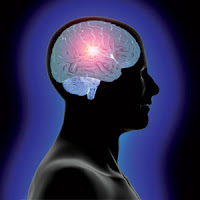Using Deep Brain Stimulation to treat Alzheimer’s is starting to take off. More patients are being added to clinical trials. Learn about the U.S. FDA’s approval of the trial’s expansion. Read about new trial locations backed by funding from the U.S. government’s NIH.
How’s The 1st Alzheimer’s Pacemaker Doing?
TORONTO–Functional Neuromodulation Ltd.’s ADvance Study has implanted 20 mild Alzheimer’s patients with deep brain stimulation (DBS) systems, and the U.S. Food and Drug Administration has approved expansion of the study from 20 to 30 U.S. patients in combination with 20 subjects approved in Canada.
“We expect our progress to accelerate as we now have active teams of Alzheimer’s and neurosurgical experts in place and recruiting at seven leading research centers in North America.”
The U.S. National Institutes of Health is providing support for the trial. The National Institute on Aging, part of NIH, awarded a grant to Dr. Constantine Lyketsos, of Johns Hopkins Bayview Medical Center, Baltimore, and Dr. Andres Lozano, of the University of Toronto. The NIA/NIH grant is expected to total more than $2 million over the next five years.
In addition, Banner Sun Health Research Institute in Sun City, Ariz. and Brown University affiliated Butler and Rhode Island Hospitals in Providence have partnered to join the study, bringing the total to seven centers participating in the study. ADvance is evaluating the safety and potential clinical benefit of stimulating the fornix, a major inflow and output pathway in the brain’s memory circuit, for patients with mild Alzheimer’s.
“We are halfway to our goal of enrolling 40 patients in the U.S. and Canada. The study investigators have been very diligent in enrolling appropriate patients with early Alzheimer’s disease,” said Todd Langevin, President and COO of Functional Neuromodulation. “We expect our progress to accelerate as we now have active teams of Alzheimer’s and neurosurgical experts in place and recruiting at seven leading research centers in North America.”
“Alzheimer’s is a growing public health concern, and with the recent disappointments in drug research, we urgently need new ideas,” said Stephen Salloway, MD, a principal investigator for the study and director of the Memory and Aging Program at Butler Hospital. “DBS has helped transform the treatment of Parkinson’s disease and we hope that stimulation of memory circuits can have a similar benefit in treating Alzheimer’s disease.”
Patients are currently being recruited to participate in the study at:
- The Banner Alzheimer’s Institute in Phoenix, Ariz.;
- Banner Sun Health Research Institute in Sun City, Ariz.;
- Butler Hospital and Rhode Island Hospital in Providence, R.I.;
- Johns Hopkins Bayview Medical Center in Baltimore, Md.;
- Toronto Western Hospital in Toronto, Ont.;
- University of Florida Center for Movement Disorders and Neurorestoration in Gainesville, Fla;
- The University of Pennsylvania in Philadelphia, Pa.
ADvance is a randomized double-blind controlled trial of patients under age 81 with mild Alzheimer’s disease. The trial compares the effects of DBS turned on to those observed with the system turned off. The patients will undergo regular physiological, psychological and cognitive assessments for 12 months at which time those patients in the off group will have the system activated. Brain imaging measures of changes in glucose metabolism and the size of key structures involved in memory will also be assessed at multiple time points.
ADvance is co-chaired by Andres Lozano, MD, PhD, R.R. Tasker Chair in Stereotactic and Functional Neurosurgery at the University Health Network and University of Toronto and Scientific Founder of the company; and Constantine Lyketsos, MD, MHS, Elizabeth Plank Althouse Professor, Johns Hopkins University, and Director, Johns Hopkins Memory and Alzheimer’s Treatment Center.
About Deep Brain Stimulation
Deep brain stimulation (DBS) uses a surgically implanted medical device, similar to a cardiac pacemaker, to deliver mild electrical pulses to precisely targeted areas of the brain. Medtronic, in collaboration with leading physicians around the world, pioneered DBS therapy, which was first approved in Europe in 1995 and in the United States in 1997. The therapy is currently licensed in Canada and approved in other regions, including the European Union and the United States, for the treatment of the disabling symptoms of essential tremor, advanced Parkinson’s disease and chronic intractable primary dystonia, for which approval in the United States is under a Humanitarian Device Exemption (HDE)1. In Europe, Canada and Australia, DBS therapy is approved for the treatment of refractory epilepsy. The therapy is also approved for the treatment of severe, treatment-resistant obsessive-compulsive disorder in the European Union, Australia and in the United States under an HDE2. More than 100,000 people worldwide have received Medtronic DBS therapy.
About Functional Neuromodulation, Ltd.
Founded in Toronto, Ontario in 2010, Functional Neuromodulation is dedicated to advancing the application of DBS therapies to help improve the lives of people with Alzheimer’s and other memory and cognitive disorders. The Company has received funding from Genesys Capital, Foundation Medical Partners and Medtronic. For more information, visit http://fxneuromod.com.
1 Humanitarian Device in the U.S.: The effectiveness of this device for the treatment of dystonia has not been demonstrated.
2 Humanitarian Device in the U.S.: The effectiveness of this device for the treatment of obsessive-compulsive disorder has not been demonstrated.











